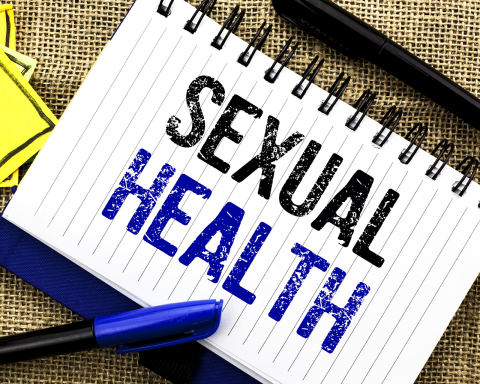All young people deserve high-quality sex education and sexual health care, yet not all of them have access to these vital resources. The current landscape of sexual health for young people has been shaped by years of stigma around adolescent sexuality and the Trump administration’s dismissal of young people’s sexual health needs. However, Congress has the ability to make sexual health information and services more accessible for adolescents and young adults.
In 2019, federal lawmakers reintroduced two complementary bills—the Real Education for Healthy Youth Act (REHYA) and the Youth Access to Sexual Health Services Act (YASHS)—that would address this need by expanding the sexual health information and services that are available to young people. REHYA would ensure funding for comprehensive sex education programs, while YASHS would primarily support access to sexual and reproductive health care and related services. Both focus on groups that have been historically marginalized in social, economic and medical settings: young people of color, LGBTQ+ youth, immigrants and adolescents in juvenile detention, among others. These bills offer alternatives to the abstinence-only programs that the Trump administration has been promoting since coming to office.
The COVID-19 pandemic starkly demonstrates the importance of access to public health information and affordable health care services for all. It is critical to equip people with tools to understand and address their health needs so that in times of crisis—whether a global challenge like the COVID-19 pandemic or a personal emergency—those needs will not be neglected.
Both bills address young people’s sexual health needs by centering medically accurate and complete information, inclusive and age-appropriate information and services, and healthy communication and relationships. Although some states’ sex education laws already reflect these principles, federal leadership is still necessary, as:
- 24 states do not require sex education to be age appropriate
- 29 states do not require sex education to cover healthy relationships
- 33 states and the District of Columbia do not require sex education to be medically accurate
- 41 states do not require sex education to be culturally appropriate and unbiased
The inadequacy of abstinence-only curricula and the importance of culturally appropriate, age-appropriate and medically accurate sex education that discusses healthy relationships is recognized by multiple provider groups. Experts at the American Medical Association, Society for Adolescent Health and Medicine and American College of Obstetricians and Gynecologists acknowledge young people’s sexual activity and their right to sexual health, and support sex education programs that include these principles. Their positions align with evidence suggesting that comprehensive approaches to sex education help young people have healthy and responsible relationships. On the flip side, abstinence-only programs do nothing to prepare young people for when they do become sexually active, and systematically ignore the needs of those who are already having sex.
Real Education for Healthy Youth Act
This bill would establish the first federal grants for comprehensive sex education programs and eliminate funding for the harmful Title V abstinence-only-until-marriage program. The new grants would fund curricula that support the sexual health and agency of young people by providing tools to help them make decisions that best fit their needs. The grants would go to high schools, colleges and organizations that focus on adolescents’ health.
REHYA would require program grantees to offer culturally and developmentally appropriate instruction on physical, social and emotional development; contraceptive use, abstinence and sexual decision making; and gender equity, among other topics. The bill would also fund professional development for sex education teachers in elementary and middle schools.
The sex education programs funded through this bill represent a step forward for federal funding streams that are not dedicated solely to abstinence-only programs. The existing Personal Responsibility Education Program provides grants to states for programs that educate adolescents about abstinence and the use of contraception to prevent pregnancy and STIs. The Teen Pregnancy Prevention Program (TPPP) is a grant program for community-based groups to support evidence-based and innovative teen pregnancy prevention approaches. Currently, neither program directly supports comprehensive sex education programs, and in recent years, the Trump administration has sought to shift TPPP toward an abstinence-only approach.
Youth Access to Sexual Health Services Act
YASHS would create competitive grants to provide sexual health services to people younger than 26 who are disadvantaged because of underlying structural barriers or social inequities, including young people of color, immigrants and LGBTQ+ youth. State and local health agencies, public schools, nonprofit organizations, hospitals, and Indian tribes and tribal organizations are eligible for grants under YASHS.
Funds authorized by this bill would be used to provide sexual health information, promote effective sexual health communication among young people, support the health and economic opportunities of school-aged parents, and offer training to people who work with young people to promote the prevention of STIs and unintended pregnancies. Funds could not go to entities that withhold "health-promoting or life-saving information" (including abstinence-only programs), promote gender stereotypes, or are insensitive or unresponsive to the needs of young people who are LGBTQ+, sexually active, pregnant or parenting, survivors of sexual abuse or assault, or who have physical, developmental or mental disabilities.
Creating New Opportunities for Young People
The Trump administration has demonstrated time and again its allegiance to abstinence-only programs and hostility toward people with low incomes, LGBTQ+ people and immigrants and their ability to access health care. By funding comprehensive sex education and sexual health services for underserved groups, these bills push back against the administration’s bigoted agenda and recognize the right to sexual health for all young people.
